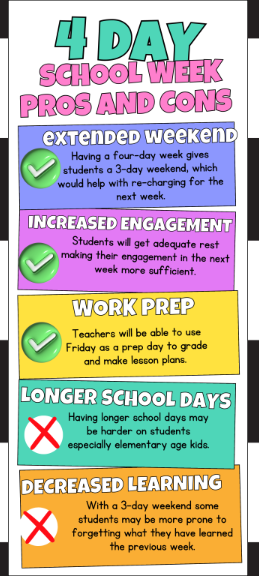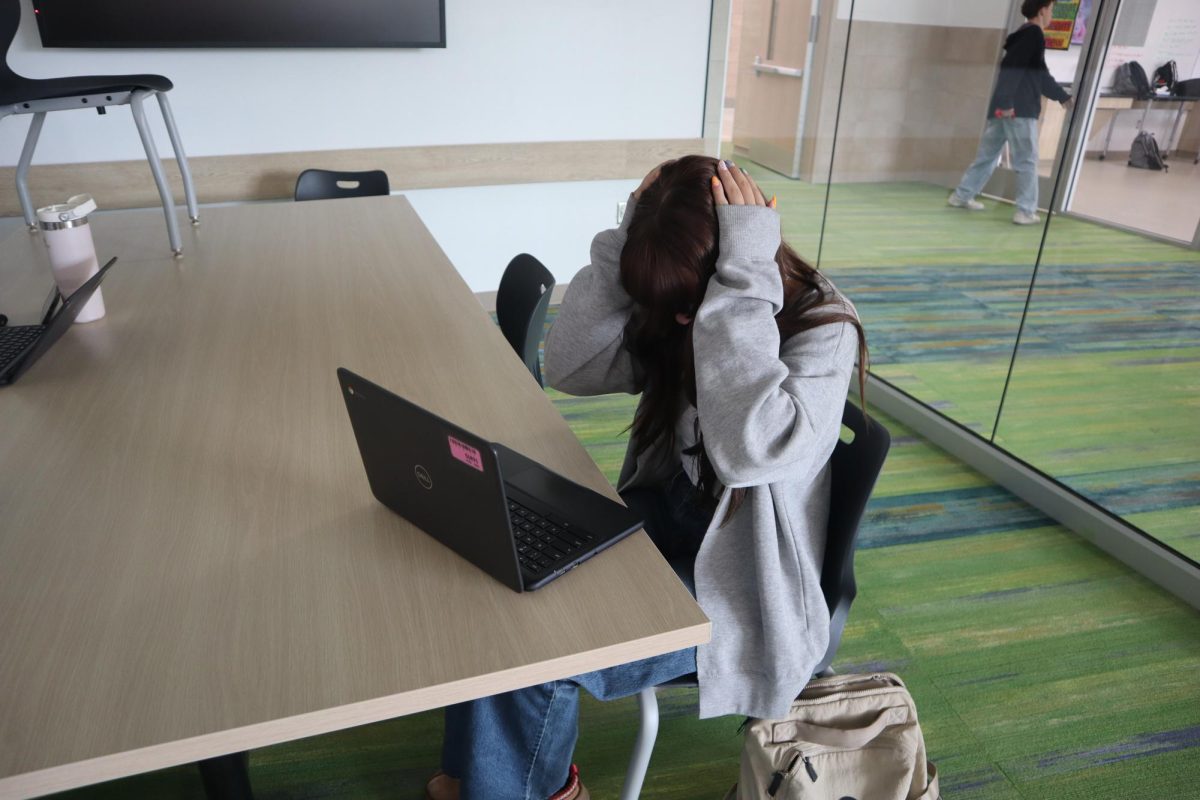Should we or should we not have school on Fridays? Many people believe that having school four days a week is a waste of time, while others believe there are many benefits. It is a common topic talked about among students, parents, and staff. A four day week brings many benefits to students and the school.

There are many reasons to have school off on Fridays. According to the article, “Why Having Fridays Off Could Boost Students’ Success,” by Caprese Armstrong, it says that having school off on Fridays gives students “A chance to have a break, and re-collect themselves.” (Caprese Armstrong). Students are piled up with work, and having an extra day off can help them catch up and relax after a busy school week. Having an extra day to catch up on work can improve students’ grades. In the YouTube video, “4 Day School Week: Helpful or Harmful,” it says that “A four-day school week offers benefits such as improved work-life balance, reduced costs, and flexibility for teachers, students, and parents.” (Educational Innovation 360).
Although there are many benefits to school off on Fridays, there are also many cons. In this article, “The Pros and Cons of the Four-Day School Week,” it says that longer days are tough on younger students and the schedule is inequitable. (Linq). Having longer school days may drain out students and make them more tired. This article “The 4-day school week: Pros and Cons” states that there are “Childcare issues.” (Greenlight). Having school four days a week means only four days of meals. Some students may rely on the food at school and not having it five days a week may be detrimental to the students overall health.
Having school off on Fridays significantly helps teachers with work preparation and grading. In the article, “Four-Day School Week Overview,” it says that “With an extra day to plan lessons, grade assignments and attend professional development opportunities, teachers can feel more prepared and engaged in their work. This can lead to better job satisfaction, which can translate into better classroom performance.” (NCSL). Having an extra day to prep students’ work makes it easier on teachers.
A four day school week has shown an increase in student engagement. In the article, “The 4-Day School Week: Pros and Cons,” it says that it “increases engagement during school hours.” (Greenlight). Having four days a week motivates students to engage in class. Student engagement plays a role in students’ behaviors and academic scores. In this article, “What The Research Tells Us About Four-Day School Weeks,” it says it “significantly reduces high school bullying and fighting incident rates and increases the amount of sleep elementary students get.” (Emily Morton). Having the right amount of rest is crucial to helping students engage and get their brains working.
Four day school weeks have also shown a decrease in students’ learning. In this article, “What Research Tells Us About Four-Day School Weeks,” it says that there are “…small to medium negative impacts on achievement on average.” (Emily Morton). A four day school week affects students’ ability to increase their academic performance. With a full, three day weekend students may forget what they had learned the previous week, leading them to bad achievements. In the article, “Four-Day School Weeks Hurt Students’ Reading, Math Achievement,”it says that, “Overall, the study found that four-day school weeks significantly hurt students’ fall-to-spring test score achievement in math by a 0.05 standard deviation, and in reading by a 0.06 standard deviation.” (Emma Merod). Having bad scores on tests affects the look on the schools representation and teachers.
Having a four day school week provides significant advantages to schools, students, and parents. An extended weekend allows students to get the proper rest and return to school more engaged. Though there are cons, like academic achievements and childcare issues, the benefits of increased student engagement and extra work preparation overpowers the issues. The four day school week provides a better environment for students and staff, encouraging them to succeed.



















